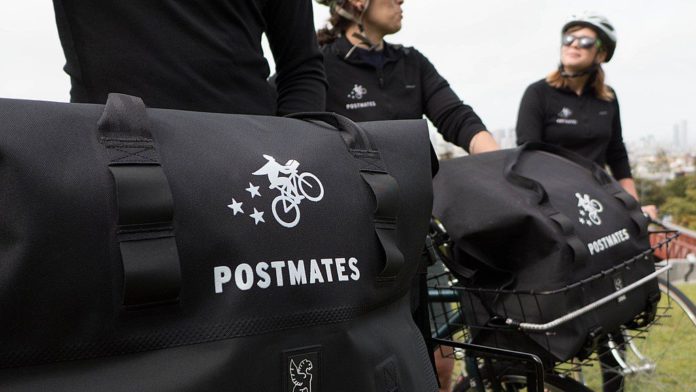
The start of 2020 has been tumultuous for California gig workers.
California’s Assembly Bill 5 went into effect Jan. 1, bringing changes to the definitions of workers and contractors. The law affects workers in a range of industries but is drawing particular attention from technology companies like Uber, Lyft and Postmates, which are trying to change the law through policy as well as through the courts. And while the changes are currently confined to California, there are some implications for other states as well.
AB 5 codifies the California Supreme Court’s decision in Dynamex Operations West, Inc. v. Superior Court of Los Angeles. AB 5, pulling from Dynamex, uses an “ABC” test to determine whether a company is a contractor or an employee. The test assumes a worker is an employee unless the employer can demonstrate three criteria: that the worker is free from the company’s control and direction in performing the work; the worker performs duties outside the work of the business; and the worker is independently performing work that is of the same nature as the work performed for the business.
California’s law rubs against National Labor Relations Board and Department of Labor guidance from 2019 that said gig economy workers driving for Uber and Lyft were independent contractors and not employees based on a separate test to determine how much flexibility drivers for those companies have. The trio of rideshare companies filed a lawsuit Dec. 29 saying AB 5 is unconstitutional.
The new law is being challenged by workers in other industries as well — the California Trucking Association is challenging the law, saying federal law preempts state laws. The association is before a California judge today for a preliminary injunction to allow truckers to continue operating as independent contractors. Freelance journalists are challenging the law as well. Various news outlets report that websites, such as SB Nation, have responded to the new law simply by laying off workers that might fall under the law’s employee classification. The same judge who is overseeing the CTA case denied a preliminary injunction from the journalists, however, saying they waited too long to raise their concerns.
In the challenge regarding rideshare drivers, a crucial element is the second prong of the ABC test — whether the workers are independent of the hiring company. The NLRB and DOL last year issued guidance saying those drivers were independent contractors and not employees. Uber and Lyft convinced the federal entities that the companies are not in the business of driving — they are technology companies that connect drivers with people who want rides.
AB 5 may or may not conflict with that, said Bill Berger, a labor and employment attorney who founded L2S Legal. The test within AB 5 might simply mean that if you’re in the business of what the contractor does, you are an employer.
The eventual answer to that question could have significance outside of California. New York Gov. Andrew Cuomo said Wednesday in his State of the State address that gig economy worker reforms would be a focus for 2020 and that he plans to introduce legislation to make sure “all New York’s workers have necessary benefits and protections.” That legislation could look a lot like AB 5.
The question could come up in Colorado as well. A May Colorado Supreme Court decision hinged on the question of whether a company, Custom Maid, was in the same business as its workers. Although Custom Maid argued that it simply referred out workers for house cleaning services, the court disagreed. The Supreme Court found that the company was in the same business and didn’t rely on any other software or technology to connect house cleaners with clients, so the situation for Custom Maid was different from Uber’s.
The court might not have spelled it out directly, but that ruling could be an indication that the Colorado Supreme Court is aligned with the Dynamex decision now being applied in AB 5. Maybe.
Nobody really knows for sure whether that is the law in Colorado, Berger said, until someone pushes the question further through a legal challenge.
“People will say that absolutely is not the case in Colorado. Other people will say that absolutely is the law,” he said. “I think it’s an expensive issue to have to litigate in Colorado.”
Regardless of the Colorado Supreme Court’s leanings, Berger said companies that might be affected by the law should already be thinking about their worker classification anyway. He said any company using contractors in a significant way needs to first figure out whether it is in a “lawful defensible position.” Businesses should also take into account that this is a political issue likely to change with swings in political party control. The NLRB and DOL under the Trump administration took a different position from the Obama administration, and that position is likely to switch again at the federal level if that administration changes after the 2020 election.
And in Colorado, employers need to consult with a lawyer, read the Colorado and California Supreme Court cases and ask questions about their business model. And employers need to consider their own operations and keep in mind that the government likely won’t have sympathy on a struggling business.
“And the last thing — this is tough medicine – [employers] need to realize that if your defense in court is, ‘I cannot afford to run my business and pay those taxes,’ you will be put out of business by the government,” he said.
— Tony Flesor

